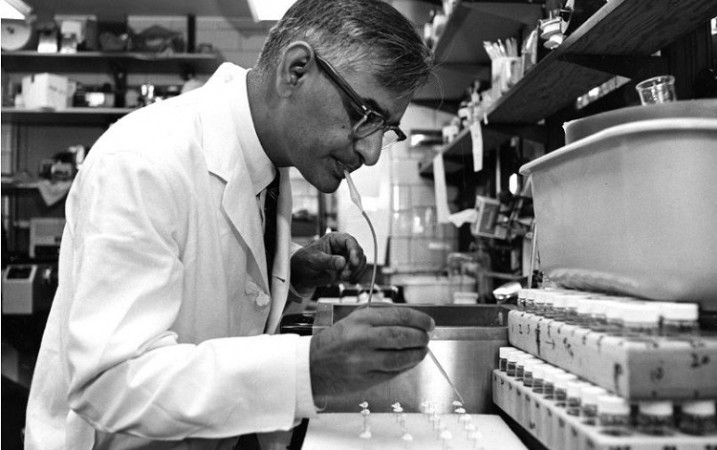
January 9, 2024 commemorates the 102 birth anniversary of the visionary biochemist, Har Gobind Khorana, born in Raipur, Pakistan, in 1922. Khorana's groundbreaking contributions to molecular biology and genetics revolutionized scientific understanding.
During his tenure at the University of Wisconsin–Madison, Khorana, alongside Marshall W. Nirenberg, was awarded the Nobel Prize for Physiology or Medicine in 1968. Their pioneering research deciphered the genetic code and laid the foundation for DNA research, unveiling the complexities of life at a molecular level.
Khorana's relentless pursuit of unraveling the genetic code's intricacies has been instrumental in advancing scientific knowledge, paving the way for remarkable breakthroughs in biotechnology and medicine.
In 1949, unable to secure a job in India, Khorana joined Todd’s laboratory in Cambridge, England. Here, he utilized "DCC as a powerful reagent for activation of phosphate esters and the synthesis of nucleoside pyrophosphates" (RajBhandary).
After his time in Cambridge, Khorana relocated to UBC in Vancouver, taking up a position that offered freedom but lacked adequate facilities. Despite this, he believed organic chemistry research was cost-effective, requiring only basic equipment like test tubes. Esteemed chemists gathered in his lab to learn his innovative synthesis techniques. These foundational principles enabled Khorana and his team to undertake groundbreaking work in various domains.
Upon joining the University of Wisconsin, discoveries from his laboratory contributed significantly to decoding the genetic code and achieving the first chemical synthesis of a gene.
Transitioning to MIT in 1970, Khorana's lab achieved another milestone by synthesizing a suppressor tRNA gene, demonstrating its functionality in a bacterium—an accomplishment of great significance in genetics. Subsequently, he shifted his focus to studying membranes, membrane proteins, and signal transduction, dedicating over thirty years to these research areas until his retirement in 2007.
n this auspicious occasion, we honor Har Gobind Khorana's indelible legacy, recognizing his profound impact on genetic research and his enduring influence on the scientific community worldwide.